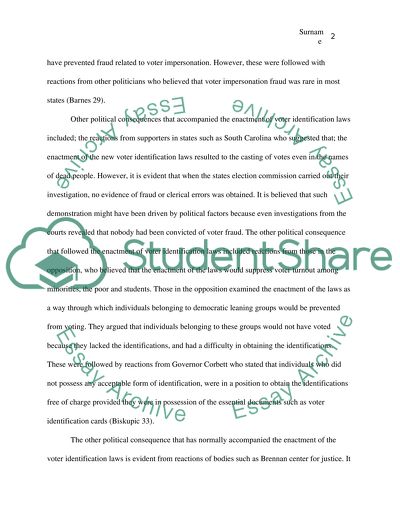Cite this document
(Voter ID: The Social, Economic, Legal and Political Aspects of Voter Case Study, n.d.)
Voter ID: The Social, Economic, Legal and Political Aspects of Voter Case Study. Retrieved from https://studentshare.org/politics/1619157-voter-id-the-social-economiclegal-and-political-aspects-of-voter-id-laws
Voter ID: The Social, Economic, Legal and Political Aspects of Voter Case Study. Retrieved from https://studentshare.org/politics/1619157-voter-id-the-social-economiclegal-and-political-aspects-of-voter-id-laws
(Voter ID: The Social, Economic, Legal and Political Aspects of Voter Case Study)
Voter ID: The Social, Economic, Legal and Political Aspects of Voter Case Study. https://studentshare.org/politics/1619157-voter-id-the-social-economiclegal-and-political-aspects-of-voter-id-laws.
Voter ID: The Social, Economic, Legal and Political Aspects of Voter Case Study. https://studentshare.org/politics/1619157-voter-id-the-social-economiclegal-and-political-aspects-of-voter-id-laws.
“Voter ID: The Social, Economic, Legal and Political Aspects of Voter Case Study”. https://studentshare.org/politics/1619157-voter-id-the-social-economiclegal-and-political-aspects-of-voter-id-laws.


